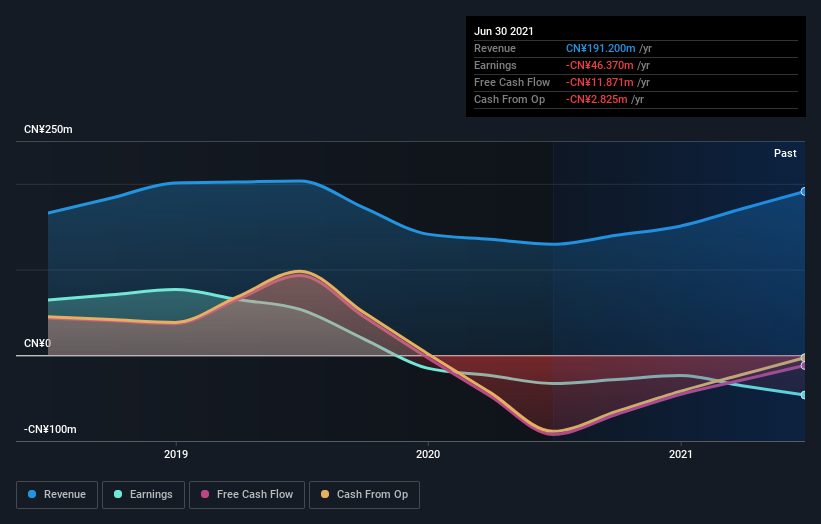Shareholders have faith in loss-making Puyi (NASDAQ:PUYI) as stock climbs 11% in past week, taking one-year gain to 12%
There's no doubt that investing in the stock market is a truly brilliant way to build wealth. But if when you choose to buy stocks, some of them will be below average performers. Unfortunately for shareholders, while the Puyi Inc. (NASDAQ:PUYI) share price is up 12% in the last year, that falls short of the market return. We'll need to follow Puyi for a while to get a better sense of its share price trend, since it hasn't been listed for particularly long.
Since it's been a strong week for Puyi shareholders, let's have a look at trend of the longer term fundamentals.
View our latest analysis for Puyi
Because Puyi made a loss in the last twelve months, we think the market is probably more focussed on revenue and revenue growth, at least for now. Generally speaking, companies without profits are expected to grow revenue every year, and at a good clip. That's because fast revenue growth can be easily extrapolated to forecast profits, often of considerable size.
Over the last twelve months, Puyi's revenue grew by 48%. That's well above most other pre-profit companies. To be blunt the 12% is underwhelming given the strong revenue growth. It could be that the market is missing what growth investor Matt Joass calls 'the hidden power of inflection points'. It could be that the stock was previously over-hyped, or that losses are causing concern for the market, but this could be an opportunity.
The graphic below depicts how earnings and revenue have changed over time (unveil the exact values by clicking on the image).
Balance sheet strength is crucial. It might be well worthwhile taking a look at our free report on how its financial position has changed over time.
A Different Perspective
We're happy to report that Puyi are up 12% over the year. The bad news is that's no better than the average market return, which was roughly 25%. Shareholders are doubtless excited that the stock price has been doing even better lately, with a gain of 38% in just ninety days. It's worth taking note when returns accelerate, as it can indicate positive change in the underlying business, and winners often keep winning. I find it very interesting to look at share price over the long term as a proxy for business performance. But to truly gain insight, we need to consider other information, too. Like risks, for instance. Every company has them, and we've spotted 2 warning signs for Puyi (of which 1 shouldn't be ignored!) you should know about.
If you would prefer to check out another company -- one with potentially superior financials -- then do not miss this free list of companies that have proven they can grow earnings.
Please note, the market returns quoted in this article reflect the market weighted average returns of stocks that currently trade on US exchanges.
This article by Simply Wall St is general in nature. We provide commentary based on historical data and analyst forecasts only using an unbiased methodology and our articles are not intended to be financial advice. It does not constitute a recommendation to buy or sell any stock, and does not take account of your objectives, or your financial situation. We aim to bring you long-term focused analysis driven by fundamental data. Note that our analysis may not factor in the latest price-sensitive company announcements or qualitative material. Simply Wall St has no position in any stocks mentioned.
Have feedback on this article? Concerned about the content? Get in touch with us directly. Alternatively, email editorial-team (at) simplywallst.com.

 Yahoo Finance
Yahoo Finance 
